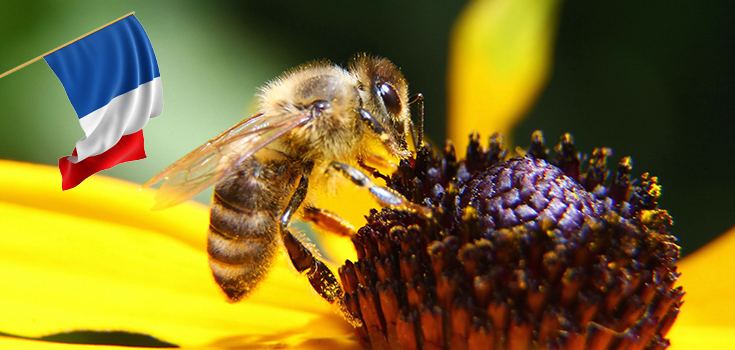France Approves Plan to Ban Bee-Harming Neonicotinoid Pesticides
France Approves Plan to Ban Bee-Harming Neonicotinoid Pesticides
Bill moves on to the French Senate
France gets it when it comes to pesticides.
France gets it when it comes to pesticides. Lawmakers in the country just approved plans to totally ban some widely used pesticides blamed for harming bees , going above and beyond European Union (EU) restrictions.
Two years ago, the EU limited the use of neonicotinoid chemicals , commonly known as neonics , produced by companies including Bayer CropScience and Syngenta , after studies showed the pesticides threatened bees , which play a vital role in pollinating crops.
The agrotech giants have argued that the research blaming neonics is not backed up by field studies, and a worldwide drop in bee numbers in recent years is caused by a wide array of factors. [1]
Bayer called the move a setback to farmers in a statement, adding:
“Some farmers are going to find themselves in a dead-end regarding crop protection … and could see their harvests fall by 15 to 40 percent depending on the crop.”
Farmer groups, too, are upset with the move, saying there are no viable alternatives to neonics, and a full ban would put the country at a disadvantage over other crop producing nations in the EU.
Read: This Natural Food Could Finally Put an End to Harmful Pesticides
France’s National Assembly passed the ban by a narrow majority late Thursday as part of a draft bill on biodiversity that also places an additional tax on palm oil. The bill would not go into effect until September 1, 2018, later than the January 2017 deadline that some lawmakers had proposed.
The proposed neonicotinoid ban, supported by France’s environment minister , must still clear the regulatory hurdle of passing before the French Senate , before a final vote in the National Assembly is expected mid-year.
France’s environment minister, Segolene Royal, is also in favor of phasing out glyphosate , the main ingredient in Roundup. He said in a statement:
“This decision will prepare us for the future and protect bees and the role they play. Research and development of substitute products has to accelerate.”
Agriculture Minister Stephane Le Foll is against the ban , and has been piloting a wider French plan to halve pesticide use . However, Le Foll had to move back the initial target for reaching that goal in the face of rising farm chemical use by 7 years , partly due to weather patterns, including a wet summer in 2014 that increased crop disease. He believes a total ban could hurt farmers in the EU’s biggest crop producing country.
Activism at Work: Boulder City, Colorado Nixes Bee-Killing Neonicotinoids
Dave Timms, a bee campaigner with Friends of the Earth, dismisses the concerns , saying:
“The scientific evidence against neonicotinoids is growing all the time. Moves in France to tighten restrictions beyond those currently in place across Europe are a sensible response to the threat these pesticides pose to a range of wildlife, including bees.
It’s a shame the UK government doesn’t yet see Britain’s bees as worthy of the same protection.” [2]
| About Julie Fidler: | |
| Julie Fidler is a freelance writer, legal blogger, and the author of Adventures in Holy Matrimony: For Better or the Absolute Worst. She lives in Pennsylvania with her husband and two ridiculously spoiled cats. She occasionally pontificates onher blog. | |
Other Popular Stories:

Post a Comment